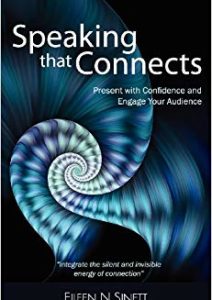Recently I was having a drink at my local hang-out, when I ran into a colleague I met a few years ago but who I hadn’t seen since. We recognized each other and engaged in a catch-up conversation. As we moved from small talk to more business talk, I realized that my first impression was no longer my current impression and I took the awkward risk of expressing this realization quite openly. All seemed fine, until the following week when I received an email calling me all kinds of negatives. I was truly shocked, yet apologized. As a communications expert I know that if your message doesn’t get through as you intended it, then you are partly at fault.
This scenario reminds me of an interesting article on “being yourself” which appeared in the New York Times on June 4, 2016. The author, Adam Grant wrote: Nobody wants to see your true self. We all have thoughts and feelings that we believe are fundamental to our lives, but that are better left unspoken. Unless you’re Oprah, being oneself is terrible advice.
Although I understand the op-editor’s point of view, I feel more aligned with Brene Brown’s perspective that being open and vulnerable demonstrates strength. We all conceal aspects of ourselves at times depending on our audiences, be it a prospective client, partner, family member, business associate, or social group. It can be equally authentic to keep ideas and/or beliefs private or to share them. Keep in mind, though, that sharing authentically is often a risky and vulnerable choice, as my opening story suggests.
This debate on authenticity reminds me of a colleague discussion on Masks in Business that I facilitated at a networking meeting. One might assume that a “mask” is inauthentic, as masks are usually designed to disguise one’s identity. However, here are insights from this discussion, some of which may be somewhat surprising.
Masks can be an asset and a ticket to acceptance
We all face situations where we dress, speak or act in a particular way in order to meet the expectations of the group we are in. Wearing a suit or carrying a briefcase may feel like a costume, but it can also facilitate connection and trust. People tend to accept those who are most similar to themselves. In sales, when you mirror your client’s body language to gain trust, are you being authentic or manipulative?
Environmental masks are not always preferred
“I have several rooms in my business space, some neater than others. Sometimes I lead my clients to the more organized environment, to reflect the more “put together” me. However, I have found my overly-packed and sometimes out-of-order environment is frequently more appreciated and comfortable for many clients.”
Masks can expand your sense of self
“Once I bought a baseball cap with long brown hair hanging all the way around the brim. I imagined myself a redneck, which was totally out of character for me. Once I put on the hat, I suddenly felt free to become that character! What surprised me was how this simple mask caused something in me to break loose. The experience expanded my sense of self and I felt more complete and authentic!”
Masks can be transitory
“When I stopped being an attorney and became a meditation coach, my clothes, speech and behavior changed significantly. Now I look back at my first career and see how it masked my being who I was meant to be.”
Masks need not be negative
We often think of masks as false, hiding behind them to conceal our true selves. But when you think of the role of masking tape in relationship to painting, a different picture emerges. Masking becomes a form of protection and preservation. Therapists, coaches, consultants and salespeople may intentionally mask their feelings in order to eliminate bias and allow for objectivity. Having a boundary that masks a personal point of view can be immensely helpful to clients.
Here are some takeaways:
- Masks can be helpful and harmful, protective and deceptive, engaging and disarming.
- Speaking one’s truth can support or compromise relationships. Communication is often misunderstood.
- Authenticity is a core value and your birthright. Being oneself is important for everyone; not just for Oprah. It is your personal essence and inner connection to yourself that makes you unique.
- Expressing that essence through language often poses the challenge and the risk.
Personally, I’d rather share authentically and risk misunderstanding, than be guarded and mask my true nature. There’s room for both. Knowing your listeners better can be the tipping point for being both authentic and understood.





